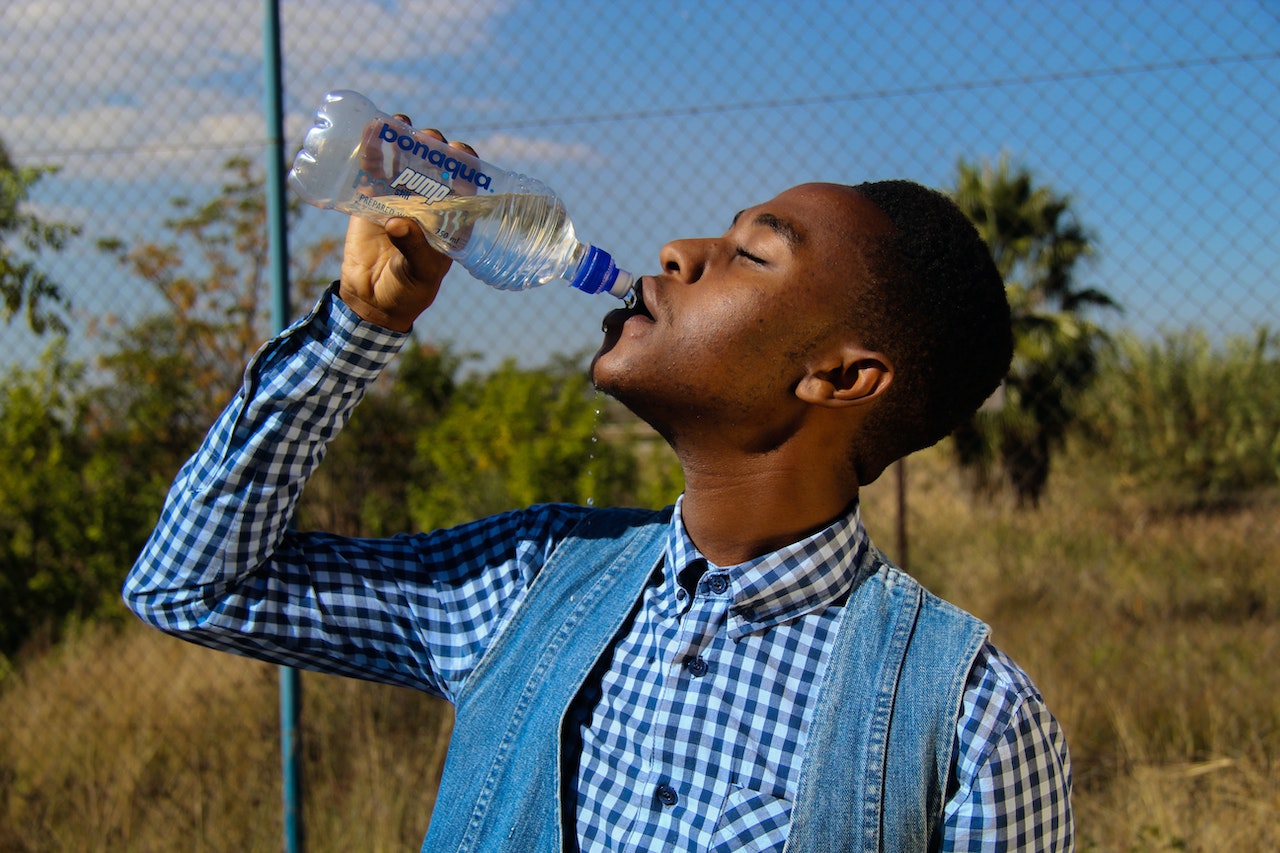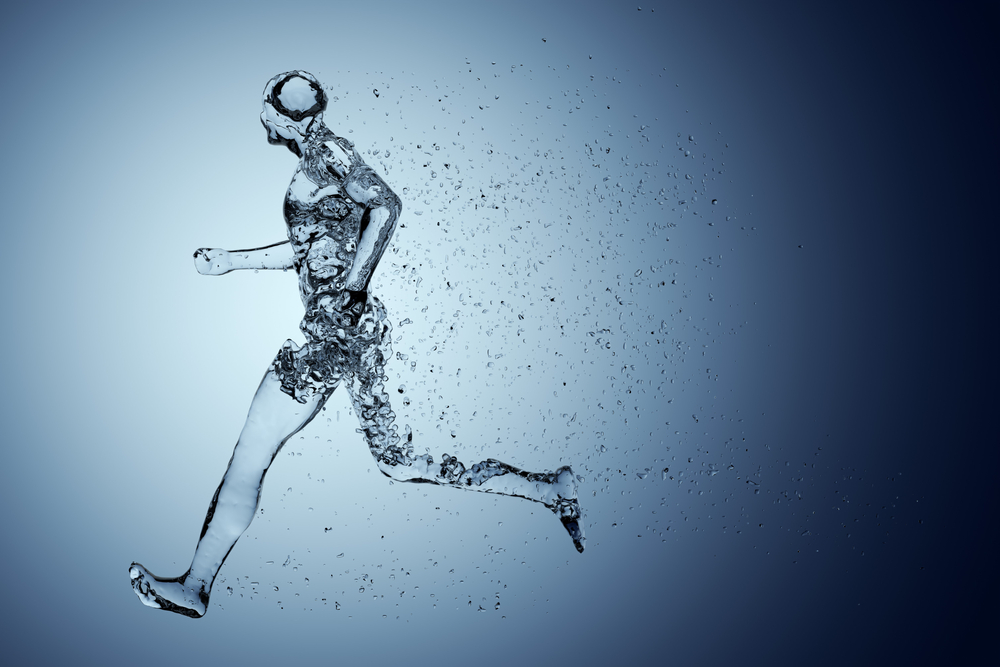Top 7 Benefits of Water Fasting: Hydrate, Heal, And Thrive
- Get link
- X
- Other Apps
Fasting, or abstinence from food, is to become aware of your dependencies and break free from them. Nothing could be a better companion in your fasting journey than the essence of life — water. Fasting is a powerful tool that can help reset your metabolism temporarily, and hydrating with water could help in the process. Both anecdotal and scientific evidence supports the benefits of water fasting for healing the body at a cellular level.
Our contributor, Barbara Kovalenko, who is RD and nutrition consultant at Lasta Fasting app, states fasting does not necessarily boost metabolism in the long term. While short-term fasting might temporarily increase metabolism, extended fasting can lead to a slowed metabolic rate.
From eliminating damaged cells, regenerating new ones, and detoxifying the body to jumpstarting your metabolism, water fasting does it all. Nevertheless, water fast has its own drawbacks, which you should be well aware of. You must know the techniques and strategies of a water diet to reap consistent and transformative water fasting results.
What Is Water Fasting?

Water fasting is a type of fasting where you only consume water for a set period of time. Fasts are often used to describe any sort of purifying diet, but with water fasting, you consume no calories because there is zero food intake. It differs from caloric restriction, which involves reducing a person’s daily calorie intake by 20–40%.
What is important to note here is that water fasting is for a stipulated period of time and should be done only periodically. In the long run, the body needs calories, as they are the energy batteries on which we function. Only a carefully thought-out, brief water fast can help reset and restore your metabolism and rejuvenate the body (1).
Water Fasting: How to Do It Properly?
There are no documented scientific guidelines explaining how to observe water fast. However, anecdotal data does talk about the experiences of people with water fasting. If you have been thinking about fasting and its benefits for a while, this may help you.
Here are general steps and methods for water fasting:
1. Seek Professional Help
Consult a medical expert to make sure a water fast is safe before starting it. 3-4 days prior to the fast, gradually cut back on your food intake while concentrating on simple, light foods.
2. Set a Time Limit
Set a time limit for your water fast. Beginners frequently begin with shorter fasts for a day. 24 to 48 hours of water fasting are usual. Experience and frequent attempts at a water diet may extend your water fasting to up to 72 hours.
3. Stay Hydrated

Stay hydrated by drinking plenty of water throughout the fast. Aim for 8-10 glasses of water daily, or two to three liters of water, to prevent dehydration and dizziness. Always consult your doctor regarding your limit for water intake (2).
4. Avoid Overexertion
During the fast, prioritize rest and relaxation. Steer clear of demanding activities that could drain your energy.
5. Monitor Your Body
Pay attention to the cues from your body. End the fast immediately and see a doctor if you experience extreme discomfort, lightheadedness, or any other unsettling symptoms.
6. Know the Tips on How to Break the Fast
It is challenging to break the fast. Start with small, easily absorbed mini-meals or juices when breaking the fast. To avoid taxing your digestive system too much, gradually reintroduce a larger portion over a few days. This reduces the chances of refeeding syndrome — a rare condition of sudden imbalances in fluid and mineral levels in the body due to overeating after prolonged starvation (3).
It’s crucial to remember that not everyone can observe a water fast (4). A few situations in which fasting is contraindicated are:
- High uric acids levels as in gout
- Type 1 and 2 diabetes
- Eating disorders
- Elderlies
- Pregnant ladies
- Children
Always consult with your physician and dietician before attempting fasting.
7 Amazing Benefits Of Water Fasting

Water fasting offers several benefits for the mind and body. Numerous animal models and human research studies have talked about the health benefits of fasting with no calorie intake and a water diet.
Here are seven key advantages of water fasting:
1. Helps in Detoxification
In a book about body cells and molecules, Dr. Gerald H. Pollack, a bioengineering professor, mentions that water behaves differently after entering living body cells. It forms a gel-like layer called the “exclusion zone” (EZ) water, which is not the regular H2O, but has three hydrogen atoms— H3O2 and holds a negative charge.
This gel repels contaminants and toxins by pushing them away from the active cells. This discovery was integral to proving that water is ideal for detoxifying the body (5). Detox is the first step towards cleansing your body for better overall health.
2. May Induce Autophagy
A cellular mechanism called autophagy allows the body to break down and eliminate malfunctioning or damaged cells. When older, aging cells are trashed out, the body is encouraged to produce new cells. By far one of the most premium benefits of water fasting is stepping up autophagy, which encourages cellular renewal and may also have anti-aging effects. The body can operate more effectively by getting rid of outdated and damaged cells (6).
This cell renewal process is vital for growth, repair, and regeneration in the body. This has anti-aging effects that help prevent degenerative diseases like Alzheimer’s disease, chronic heart conditions, and cancer (7),(8),(9),(10).
3. May Improve Insulin Sensitivity
Insulin sensitivity describes how well the cells of the body respond to insulin. Drinking only water while fasting has been demonstrated to increase insulin sensitivity, which helps control blood sugar levels and lowers the risk of developing insulin resistance and type 2 diabetes. However, before attempting to water fast, people with diabetes should consult a diabetologist (11).
4. May Improve Leptin Sensitivity
Leptin is a hormone produced by the body’s adipose tissues (fat cells) that regulate appetite and the sensation of hunger. According to research, a water fast may increase leptin sensitivity in the body. The hormone works better when it is more sensitive. Your body may be able to process hunger signals more quickly as a result, which could reduce your chance of overeating and help in portion control (12).
5. May Help Lower Blood Pressure
A study conducted on obese people found that a water fast, done under medical supervision for about 17 days, led to lower blood pressure. It also resulted in improvements in LDL (bad) cholesterol levels and reduced inflammation in the body (13).
Another review also suggested that water fasting could effectively lower blood pressure and body weight in people with high blood pressure (14).
6. Lowers the Risk of Several Chronic Diseases
There are studies that suggest that in the long run, water fasting results in the prevention of many chronic diseases, like high cholesterol, heart problems, high blood pressure, diabetes, obesity, and cancer (15).
7. May Boost Mental Health

When you’re on no food and a only water diet, the body begins using your fat reserves for energy, as glucose is unavailable. Fats break down to produce ketones. Ketones are believed to have neuroprotective effects and can enhance cognitive function. This enhances mental clarity and focus (16).
Will Water Fasting Help You Lose Weight?

With an idea of the potential benefits of water fasting and its mechanisms, it is needless to say that water fasts done periodically may induce weight loss.
As per our contributor, Barbara Kovalenko, water fasting may promote weight loss initially due to calorie restriction, but it’s not a sustainable or healthy approach for long-term weight management [2]. Proper nutrition and balanced eating habits are crucial for sustainable weight loss. There is also one time of fasting – dry fasting. When you’re on a water diet, your body enters a state called ketosis, where it starts using stored fat for energy instead of food. This happens because you’re not consuming any calories, so your body needs to burn fat cells to get the energy it needs. Water fasting helps you reach ketosis faster than traditional dieting, which can help you lose weight more quickly (17).
Moreover, detoxification processes and the reduction of cholesterol levels prevent further weight-related complications.
Dangers And Risks of Water Fasting
The benefits of water fasting are numerous, but like any other lifestyle practice, if not done properly, water fasting can go severely wrong.
Here are some of the risks associated with water fasting:
1. Muscle Loss

Your weight loss journey with an extensive water diet can go all wrong if not done properly. The initial quick shedding of pounds is very lucrative, but if you get addicted to a water-only diet and starve yourself, then you are doing more harm than good.
Once the body loses its excess fat, it may begin to break down muscle tissue to obtain energy, without your knowledge. This can result in muscle loss and a decrease in muscle strength. It is particularly concerning for individuals who are physically active or have strenuous work routines (18).
2. Nutritional Deficiencies
Water fasting involves giving up all food, which, if not well handled, can result in serious vitamin and mineral deficits. Vitamin, mineral, and protein deficiencies can have a detrimental effect on your health and could cause difficulties.
3. Electrolyte Imbalances
Long-term water fasting can throw off your body’s electrolyte balance, causing sodium, potassium, and magnesium imbalances. This can result in weakness, dizziness, and irregular heartbeat rhythms.
4. Dehydration
Even though the name is water fasting, it’s crucial to stay hydrated during the fast to a greater extent than usual. Food deficiency increases the risk of dehydration, which can cause fatigue, dizziness, kidney difficulties, and electrolyte imbalances.
5. Orthostatic Hypotension
When you suddenly experience a drop in blood pressure when standing up from a chair or the bed, it is known as orthostatic hypotension and can be a direct result of dehydration due to water fasting. It accompanies dizziness and a high chance of fainting (19).
6. Weakness
Dehydration, low energy levels, and hunger pangs may make you feel weak and drowsy all day. This hampers day-to-day life.
Before beginning water fast, it is imperative to discuss safety and suitability with a healthcare expert.
Are Short Water Fasts Safe?

Water fasting is a brief strategy that you should attempt for only short periods, like 1-3 days, and can be repeated every 15 days. This type of fasting can enhance brain clarity and provide several health advantages through autophagy.
Autophagy, as we know, helps clear out damaged cells to help grow new ones. Water fasting, however, should be done with caution, under supervision, and not too frequently, as it is not a long-term cure (20).
Is Long-Term Water Fasting Safe?
Knowing the dangers and risks of extensive and unplanned water fasting, it is needless to say that long-term water fasting is neither healthy nor safe. Dehydration and massive nutritional deficiencies may cause severe loss of muscle mass, making you abnormally thin with unhealthy muscle loss. Moreover, improper balances of essential vitamins and minerals can cause episodes of dizziness and fainting which could lead to road traffic accidents, a major fall, or other mishaps
Work closely with your doctor and the dietician, and attempt water fasting only if recommended.
What Are the Common Mistakes People Make During Water Fasting?

The benefits of water fasting, like weight loss, can be quick, making it look attractive. This may instigate you to indulge in water fast, often leading to serious health hazards.
Here are some of the common mistakes that you could be making:
- Not preparing your body for an upcoming round of water fasting.
- Water fasting too often without medical supervision.
- Extended the duration of water fasting for faster results.
- Ignoring the signals of dizziness and fatigue during water fasting.
- Indulging in huge meals soon after fasting.
Keep in mind that water fasting can be mentally and physically taxing. It’s crucial to approach it cautiously, educate yourself, and, if required, seek professional help.
Conclusion
The benefits of water fasting outweigh its side effects if you attempt it responsibly. Our guts work around the clock to give us the necessary energy to go about our day. Fasting gives it the much-needed break that it deserves and helps the body reboot and focus on cell regeneration. When done correctly and under appropriate supervision, water fasting can offer several potential benefits, including better insulin sensitivity, enhanced heart health, cholesterol control, reduced inflammation, controlled aging, and weight loss. Water fasting can be dangerous if not done properly, so it’s important to approach it cautiously. It’s important to get a health practitioner’s guidance, take the process slowly, and listen to your body’s signals at each step of fasting to get the best results out of a water diet with minimal side effects.
Contributor: Barbara Kovalenko, Nutritional Consultant, Lasta
Sources:
1.A periodic diet that mimics fasting promotes multi-system regeneration, enhanced cognitive performance and healthspan
https://www.ncbi.nlm.nih.gov/pmc/articles/PMC4509734/
2. Og?odek E, Pilis Prof W. Is Water-Only Fasting Safe? Glob Adv Health Med. 2021 Aug 5;10:21649561211031178.
https://www.ncbi.nlm.nih.gov/pmc/articles/PMC8369953/
3. Persaud-Sharma D, Saha S, Trippensee AW. Refeeding Syndrome. [Updated 2022 Nov 7].
https://www.ncbi.nlm.nih.gov/books/NBK564513/
4. Attinà A, Leggeri C, Paroni R, Pivari F, Dei Cas M, Mingione A, Dri M, Marchetti M, Di Renzo L. Fasting: How to Guide. Nutrients. 2021 May 7;13(5):1570.
https://www.ncbi.nlm.nih.gov/pmc/articles/PMC8151159/
5. Pollack GH. Cells, gels and the engines of life: a new, unifying approach to cell function. Seattle, WA: Ebner & Sons; 2001 Jan.
https://www.ncbi.nlm.nih.gov/pmc/articles/PMC4244968/
6. Bagherniya M, Butler AE, Barreto GE, Sahebkar A. The effect of fasting or calorie restriction on autophagy induction: A review of the literature. Ageing Res Rev. 2018 Nov;47:183-197.
https://pubmed.ncbi.nlm.nih.gov/30172870/
7. Luo L, Qin ZH. Autophagy, Aging, and Longevity. Adv Exp Med Biol. 2019;1206:509-525.
https://pubmed.ncbi.nlm.nih.gov/31777001/
8. Zare-Shahabadi A, Masliah E, Johnson GV, Rezaei N. Autophagy in Alzheimer’s disease. Rev Neurosci. 2015;26(4):385-95.
https://www.ncbi.nlm.nih.gov/pmc/articles/PMC5039008/
9. Yun CW, Lee SH. The Roles of Autophagy in Cancer. Int J Mol Sci. 2018 Nov 5;19(11):3466.
https://www.ncbi.nlm.nih.gov/pmc/articles/PMC6274804/
10. Shirakabe A, Ikeda Y, Sciarretta S, Zablocki DK, Sadoshima J. Aging and autophagy in the heart. Circulation research. 2016 May 13;118(10):1563-76.
https://www.ahajournals.org/doi/10.1161/circresaha.116.307474
11.Impact of prolonged fasting on insulin secretion, insulin action, and hepatic versus whole-body insulin secretion disposition indices in healthy young males.
https://pubmed.ncbi.nlm.nih.gov/33284087/
12. Varkaneh Kord H, M Tinsley G, O Santos H, Zand H, Nazary A, Fatahi S, Mokhtari Z, Salehi-Sahlabadi A, Tan SC, Rahmani J, Gaman MA, Sathian B, Sadeghi A, Hatami B, Soltanieh S, Aghamiri S, Bawadi H, Hekmatdoost A. The influence of fasting and energy-restricted diets on leptin and adiponectin levels in humans: A systematic review and meta-analysis. Clin Nutr. 2021 Apr;40(4):1811-1821.
https://pubmed.ncbi.nlm.nih.gov/33158587/
13. Scharf E, Zeiler E, Ncube M, Kolbe P, Hwang SY, Goldhamer A, Myers TR. The Effects of Prolonged Water-Only Fasting and Refeeding on Markers of Cardiometabolic Risk. Nutrients. 2022 Mar 11;14(6):1183.
https://www.ncbi.nlm.nih.gov/pmc/articles/PMC8951503/
14. Hammoud S, Kurdi M, van den Bemt BJF. Impact of Fasting on Cardiovascular Outcomes in Patients With Hypertension. J Cardiovasc Pharmacol. 2021 Oct 1;78(4):481-495.
https://pubmed.ncbi.nlm.nih.gov/34225340/
15. Visioli F, Mucignat-Caretta C, Anile F, Panaite SA. Traditional and Medical Applications of Fasting. Nutrients. 2022 Jan 19;14(3):433.
https://www.ncbi.nlm.nih.gov/pmc/articles/PMC8838777/
16. Maalouf M, Rho JM, Mattson MP. The neuroprotective properties of calorie restriction, the ketogenic diet, and ketone bodies. Brain research reviews. 2009 Mar 1;59(2):293-315.
https://www.sciencedirect.com/science/article/abs/pii/S0165017308001045
17. Longo VD, Mattson MP. Fasting: molecular mechanisms and clinical applications. Cell Metab. 2014 Feb 4;19(2):181-92.
https://www.ncbi.nlm.nih.gov/pmc/articles/PMC3946160/
18. Laurens C, Grundler F, Damiot A, Chery I, Le Maho AL, Zahariev A, Le Maho Y, Bergouignan A, Gauquelin-Koch G, Simon C, Blanc S, Wilhelmi de Toledo F. Is muscle and protein loss relevant in long-term fasting in healthy men? A prospective trial on physiological adaptations. J Cachexia Sarcopenia Muscle. 2021 Dec;12(6):1690-1703.
https://pubmed.ncbi.nlm.nih.gov/34668663/
19. Ringer M, Lappin SL. Orthostatic Hypotension. [Updated 2023 May 16].
https://www.ncbi.nlm.nih.gov/books/NBK448192/
20. Alirezaei M, Kemball CC, Flynn CT, Wood MR, Whitton JL, Kiosses WB. Short-term fasting induces profound neuronal autophagy. Autophagy. 2010 Aug;6(6):702-10.
https://www.ncbi.nlm.nih.gov/pmc/articles/PMC3106288/
ALSO READ: Weight Loss: How effective fasting is and what are the tips to follow?
- Get link
- X
- Other Apps
Comments
Post a Comment